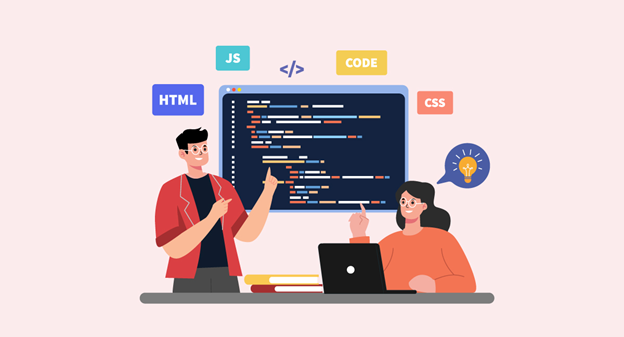
Professional software developers possess a diverse set of technical skills essential for success, largely which are obtained via a Software developer degree from the likes of CIAT.edu. They are adept at using various software programs, configuring hardware devices, and developing critical procedural steps to create their own applications. Understanding the different skills software developers have can help you identify which ones align with your preferences and enhance your career opportunities.
In this article, we explore the key skills of software developers and outline 12 technical competencies you can acquire.
What are software developer skills?
Software developer skills encompass the technical abilities needed to create successful programs and applications. These skills generally include using mathematical knowledge and problem-solving capabilities to write source code, the sequence of words and symbols that enables a program to operate. Key technical skills include proficiency with digital tools, programming languages, and computer systems. Many software developers acquire these skills through computer science degree programs or certification courses.
Software Developer Skills
Here are 12 technical skills essential for becoming a software developer:
1. Coding Languages
Coding languages are various types of source code that developers write for software programs. Specializing in at least one coding language is essential for software developers, as it can significantly enhance job prospects; hiring managers often expect candidates to have expertise in specific languages. To choose a language to learn, consider which type of program aligns with your interests. For instance, some languages are better suited for mobile application development, while others are more appropriate for video game design.
2. Database Knowledge
Databases are electronic systems used to organize and structure information, such as company records. Software developers need to know how to search for information, input new data in table format, and update systems with new materials. Additionally, they must understand how to secure databases and back up data to protect company information during unforeseen circumstances. Learning structured query language (SQL) can be particularly beneficial, as it enables developers to operate various database systems for different companies.
3. Data Structures and Algorithms
Data structures are various methods for organizing information in a database, while algorithms describe the processes needed to complete tasks. Software developers need to be familiar with many data structures and algorithms to determine which combination optimizes information in a program’s code. For example, a completed array structure can store different variations of the same type of data, such as font information in a writing program. By using the correct algorithm, users can select a font type and size efficiently.
4. Source Control
Source control management (SCM) systems help software development teams track updates and changes to a program’s code. These systems enable developers to work on code separately and merge their efforts into a single version. SCM systems can generate lists of code revisions and allow you to restore the code to a previous state if necessary. Learning how to use an SCM system is beneficial, as companies often require developers to collaborate on coding projects. Git is a popular SCM application that stores different versions of program code in one folder system, using a branch system to organize each project. The primary branch represents the original code version, while additional branches represent modifications. Git is open-source, making it accessible to everyone.
5. Testing Procedures
Every software program requires a thorough testing process before it can be released to consumers. This process involves using a series of digital tools to ensure that a product functions correctly and meets design requirements. It also involves verifying the program’s compatibility with different hardware devices and its ability to securely store confidential information. Since companies often base their testing processes on a few critical components, it is helpful for software developers to understand these fundamental aspects before applying for job positions.
Here are three components of software testing that developers should know:
Unit Testing: This test involves evaluating individual lines or sections of code to determine if they need modification. Developers often create separate unit tests for each project to ensure they examine a program’s key elements.
Integration Testing: This process determines whether different sections of a program’s code can be successfully merged. Developers also use integration testing to observe how one software program interacts with the code of another.
System Testing: After integration testing is complete, an external testing professional typically conducts system testing to ensure the product meets user expectations. Software developers need to understand this process, as testing professionals often communicate critical suggestions for alterations.
6. Debugging Knowledge
Debugging is the process of identifying and resolving errors in a program’s code. It involves running the program through specialized software to detect each error, then using problem-solving skills to determine the cause. Many developers debug their code while writing it to ensure it functions correctly during the testing stage. Learning how to use debugging software is important, as it helps developers understand fundamental strategies for error removal and develop effective debugging processes.
7. Operating Systems
An operating system (OS) is software that configures a device’s hardware and allows programs to run. The primary operating systems for computers are Microsoft Windows, macOS, and Linux, while iOS and Android are standard for mobile phones. It is beneficial for software developers to gain expertise in these operating systems, as it enables them to conduct testing procedures more effectively and transfer code between different platforms. Depending on your preferences and job requirements, you may also choose to specialize in developing program code for a specific OS.
8. Text Editing Software
Text editing software allows developers to create and edit plain text, which removes any formatting used in word processors. Developers often use text editors to write the text and symbols required for coding languages, as it facilitates seamless code transfer and formatting in other systems. Developing expertise in a particular text editing software is important, as it can be listed as a skill on your resume and help streamline your software development process.
9. Cryptography
Cryptography involves obscuring confidential data using an encryption code or password, often referred to as a key. This process uses algorithmic formulas to create corresponding decryption codes, which can reveal the original data to authorized users. Software developers use encryption techniques to prevent external agents from accessing product information. Two primary types of cryptography to learn are symmetric encryption, which uses one key, and asymmetric encryption, which uses two keys to unlock the original data.
10. Software Frameworks
A software framework is an application that developers utilize to build programs using established information, such as previously written lines of code or shared knowledge from other developers. Each operating system typically offers different frameworks that incorporate popular programming languages. These frameworks often include predefined structures and features that streamline software development. For instance, developers can use the .NET framework for coding on Microsoft Windows, Cocoa for macOS systems, or Cocoa Touch for iOS mobile devices.
11. Cloud Platforms
Cloud platforms refer to the hardware and software needed to operate a company’s remote database, commonly known as the cloud. Setting up and managing these platforms requires knowledge of coding languages and server management, which are essential skills for software developers. Many companies utilize cloud platforms for data storage, making it valuable for developers to learn how to use cloud-based programs and applications. For example, becoming certified in Amazon Web Services (AWS), a leading cloud platform, can enhance job prospects and proficiency in cloud technology.
12. Spreadsheet Software
Spreadsheet software enables users to organize data sets and perform calculations. Proficiency in using spreadsheet programs can be beneficial for software developers, as companies often require them to track data and project progress. Spreadsheets are also useful for solving equations or organizing information before transferring it to larger database systems.




